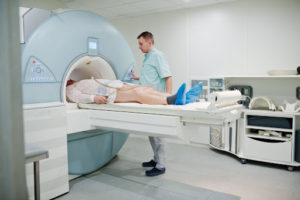 Cybersecurity experts take a specialized interest in connected medical devices for a perfect storm of reasons. Devices are some of the most vulnerable points in healthcare organizations, and because healthcare is one of the most breached institutions, having a cybersecurity practice for medical devices is critical.
Cybersecurity experts take a specialized interest in connected medical devices for a perfect storm of reasons. Devices are some of the most vulnerable points in healthcare organizations, and because healthcare is one of the most breached institutions, having a cybersecurity practice for medical devices is critical.
New innovations in healthcare have allowed for individual patients to take their health into their own hands and make less frequent trips to their doctor. Because many medical devices belong with the direct user, cybersecurity comes with unique challenges, but organizations can help patients understand the risks and keep the entire institution safe from breaches.
Individual Best Practices
More patients have access to smarter devices, allowing them to monitor their own health and communicate information to their doctors more accurately. Individual medical devices, like insulin pumps, heart monitors, or glucose meters require additional hands to ensure cybersecurity, and responsibility belongs to users at all levels. Old devices pose a cybersecurity risk, as they usually age out of being able to be updated. Medical devices should remain current enough to keep up with developer updates.
Additionally, users should frequently update their devices. Developers will send patches, and updating the device will leave no room for hackers to take advantage of vulnerabilities. Users should ensure that their device is registered with the manufacturer; doing so enables them to receive updates sooner.
Users should also note if there are any inconsistencies with their medical devices. Hackers may compromise a device weeks or even months before they carry out an attack. Monitoring for strange or inconsistent activity may give users the chance to prevent a potential breach before it becomes malicious.
How Healthcare Organizations Can Strengthen Medical Device Cybersecurity
Medical devices extend beyond in-home devices and to connected healthcare organization devices, like RT and MRI equipment. Best practices must still apply, although organizations struggle with the expense of keeping costly equipment current.
Organizations can help patients by reminding them of best practices and educating them on any cybersecurity trends. Aligning medical devices with HIPAA and HITECH guidelines. Organizations should be aware of their vulnerabilities and have a plan to patch any non-compliance.
Hiring an IT expert is the best way to ensure that medical devices are aligned with best practices, frequently updated, and patched for vulnerabilities. An IT manager can also help an organization create and draft a plan, presentable for organization compliance.
Find a Managed IT Service for Your Cybersecurity Needs
The world of healthcare information and technology is fast-paced. A managed IT service ensures that medical devices stay up-to-date. Excedeo’s experts give your healthcare organization a leg up in the fast paced world of cybersecurity.
Are you ready to elevate your business’s cybersecurity?
Contact Excedeo today to learn how we can protect your San Diego business from data breaches.
About Excedeo
There’s no need to look further than Excedeo for your IT needs. Our IT solutions experts in San Diego are prepared to elevate your business’s cybersecurity, cloud computing, and day-to-day technology. Consult with Excedeo today.